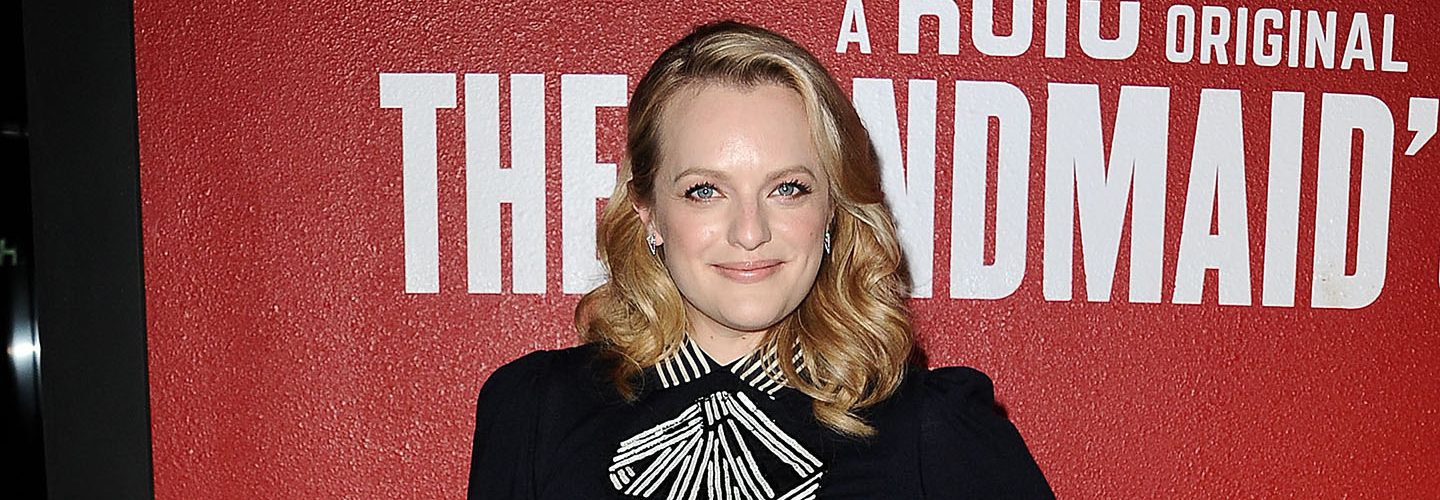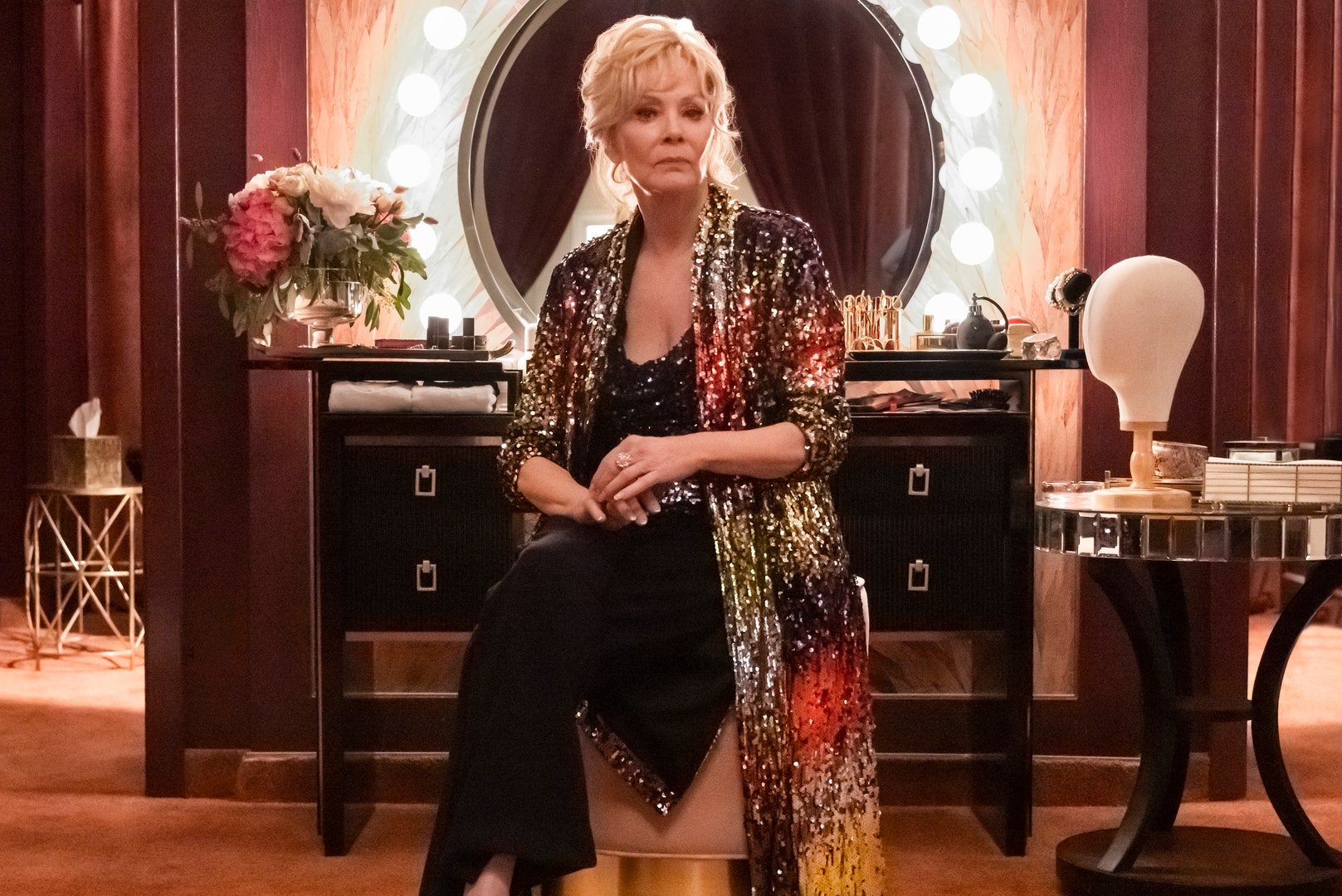The following article contains spoilers for Kevin Can F**k Himself, The Handmaid’s Tale and WandaVision.
“I’m so angry it’s insane,” said Britney Spears in her harrowing statement against the conservatorship she’s been under since 2008.
Hearing the pop star speak about the abuse she’s suffered in a gravelly, rageful voice that is markedly different than the babyish one she’s put on in interviews and Instagram Stories, confirming conspiracy theories from #FreeBritney proponents, was shocking; her anger was palpable.
As others have pointed out, Spears has become a kind of patron saint of Mad Girl Summer, serving as a guiding light to other women who are mad as hell, from superheroines and sitcom satire stars to those leaving the workforce in droves (whether by choice or not), fed up with navigating the work from home/virtual learning/unpaid domestic labor trifecta that has come to a head over the past year.
This is perhaps best depicted in Kevin Can F**k Himself, which concluded its first season on AMC on Sunday. The show borrows its name from the sitcom Kevin Can Wait, which infamously replaced the actress who played the wife of titular star Kevin James between Seasons 1 and 2 in a move that highlighted the disposability of women in the genre, and it follows the put-upon wife of another Kevin, Allison McRoberts (Annie Murphy). Following her Emmy-winning role on Schitt’s Creek, Murphy tries her hand at playing the beleaguered wife of man-baby Kevin McRoberts (Eric Petersen) in the starkly lit multi-cam parody version of their marriage, while the other half of the show depicts the gritty realism of a prestige single-camera drama from Annie’s perspective as she tries to find a way to kill Kevin.
Allison’s anger first becomes apparent in the pilot, which is initially jarring as it flips between the two formats. Allison fantasizes about fetching Kevin a glass of beer, a recurring motif throughout the episode, which she then smashes, using the jagged handle to stab him in the neck. “Oh, I killed him,” she nonchalantly tells an inquiring mind who wants to know how her husband died, a vision of her own private Hot Widow Summer.
While Allison’s murderous drive might seem extreme to some, its juxtaposition with Kevin’s controlling, coercive behavior adds another layer to the insidiousness of abuse. Because we don’t necessarily see the worst of it — we as viewers have to trust that Kevin spent the couple’s savings on bootleg sports memorabilia, spread rumors about Allison having an affair with her boss at her paralegal job in order to get her fired, and won’t let her have her own car — it leads us to wonder whether she’s making a big deal of nothing. It can’t be that bad and are you sure you’re not just imagining it? are common refrains many abuse survivors have heard. But just because we don’t see Kevin hitting Allison doesn’t mean his economic abuse is any less traumatic or maddening.
Writing for Vulture, Roxana Hadadi compared Allison’s bond with next-door neighbor/Kevin’s sidekick’s sister/accomplice Patty (Mary Hollis Inboden) to that of another unlikely duo, in Netflix’s Dead to Me, which stars Christina Applegate and Linda Cardellini as widows Jen and Judy, respectively. (Judy becomes one after they both kill her husband; Judy earlier killed Jen’s husband.) That was none more apparent than in the final scene of the Season 1 finale, in which the two form a blood oath after a violent confrontation with Patty’s brother and Kevin’s best friend Neil (Alex Bonifer), Allison’s bleeding hand a callback to the aforementioned beer glass she cut herself on in the pilot. They’re both bitter at their lots in life, but misery loves company, amirite?
Similarly, over on The Handmaid’s Tale, which concluded its return-to-form fourth season earlier this year, Elisabeth Moss has perfected the portrayal of incandescent rage. In the totalitarian theocracy of Gilead, Moss’s character June Osborne could previously only express her anger through blood-vessel-popping looks. Now that she’s free, the trajectories of her and her fellow former Handmaids Moira (Samira Wiley) and Emily (Alexis Bledel) have been about embracing their anger rather than forgiveness, which most survivors are encouraged to seek. June emboldens the refugee Handmaids to harness said fury, culminating in the cathartic beating of June’s former oppressor, Commander Fred Waterford (Joseph Fiennes).
And like Kevin Can F**k Himself’s experimentation with the multi-camera format, Disney+’s WandaVision masquerades as a frothy appreciation of America’s sitcoms through the ages but really turns out to be a coping mechanism for the grieving and rageful Wanda Maximoff (Elisabeth Olsen) who, as with Moss, plays those emotions well.
This isn’t a new phenomenon, though. Authors such as Rebecca Traister in Good and Mad: The Revolutionary Power of Women’s Anger, Soraya Chemaly in Rage Becomes Her: The Power of Women’s Anger and Ruby Hamad in White Tears/Brown Scars: How White Feminism Betrays Women of Color write about how women have been galvanized by the twin outrage brought about by Donald Trump’s election in 2016 and the #MeToo movement a year later. The aforementioned pressures of 2020 on women coupled with the resurgence of the Black Lives Matter protests have only added to the list of things women have to be angry about.
Hamad’s White Tears/Brown Scars is particularly concerned with how women of color are punished when they express the same anger that white women are celebrated for. This is evident in these shows, too, most egregiously in The Handmaid’s Tale, which has a history of doing wrong by its Black characters. One could posit that June is racist, as she’s had a hand in the deaths of at least four women of color. And Moira and Rita (Amanda Brugel) were noticeably absent in the aforementioned attack on Fred. Meanwhile, the only woman of color in the notoriously racist Worcester, Massachusetts-set Kevin Can F**k Himself is Tammy (Candice Coke), a walking Black woman cop trope, while Monica Rambeau’s (Teyonah Parris) grief and anger were not given as much reverence as Wanda’s on WandaVision.
Women have got a lot to be angry about. Pop culture is catching up, but until society stops seeing the ways in which we express it and the very bodies doing the expressing as taboo, watching angry women will still be cathartic.
This article appeared in an InsideHook newsletter. Sign up for free to get more on travel, wellness, style, drinking, and culture.























